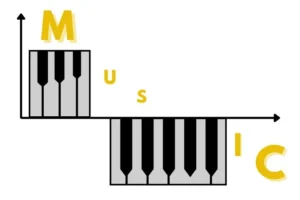
The Limited Opportunities for Music Degree Holders
Why are people not interested in pursuing higher degrees in music? Everyone wants to become a musician, form music bands, and win competitions. Yet, no one seems to show interest in gaining proper musical education.
What are the reasons behind this lack of focus on obtaining the highest degree in music?
A Degree in Music Doesn’t Earn Enough Money
Unlike an educational degree in fields like science or commerce, which opens up easy job opportunities, the scenario after acquiring a degree in music is vastly different. For a student with a music degree, securing a job feels like a dream that might take an unpredictable amount of time to fulfill. The reality is that a music degree doesn’t help one earn money quickly.
Society Fails to Recognize and Reward Instrumentalists
While a new movie generates revenue every Friday at the box office, instrumentalists and musicians lack a similar platform that could provide them with a consistent source of income.
Limited Scope for Music Production and Composing
Only a few degrees and educational models in music focus on developing skills in music composition and production. This leaves students struggling to gain expertise in these critical areas, making it challenging to earn a respectful living after completing their studies.
Music Schools Can’t Teach Creativity
In their quest to complete the curriculum, music schools often overlook real-time experiences. The kind of exposure that one gets in the market cannot be acquired by simply sitting on benches and absorbing bookish knowledge. Learning about creativity and actually becoming creative are two very different things.
The Devaluation of Music Education Due to Other Priorities
Society prioritizes other fields over music education. Systems need nuclear scientists, engineers to construct unauthorized buildings, architects, and lawyers who can manipulate the law. However, there is no significant interest in nurturing musicians who can bring soulful music into homes.
Fear of Failure in the Field
There’s a misconception that the chances of failure are much higher in this field. Additionally, there’s a group of individuals that often controls who gets opportunities and who is left behind.
The Money Factor
Some musicians compromise on quality work to grab big projects. These projects offer substantial financial returns, whereas smaller projects, like those associated with classical music, offer lower remuneration. Earning more money in such cases isn’t unethical, but it creates a divide between two branches of music, sending a wrong message to aspiring music students.
The Government’s Role in Music Education
A country’s government plays a significant role in fostering art and music through its policies. In the era of kings and emperors, music gems adorned their courts. There were dedicated music universities, and artists received significant respect and titles.
The Guru-Shishya tradition was nurtured, and people were encouraged in various ways to learn music and art.
The Influence of Crash Courses and Artificial Intelligence
Today’s era emphasizes instant results and completing tasks quickly. Most music students prefer learning ready-made techniques rather than studying traditional music in-depth. With AI, anyone can learn a desired song or tune in the blink of an eye. In the presence of crash courses and AI tools, who would be willing to spend years mastering music?
Fewer Opportunities and More Struggles
Let’s assume someone holds a music degree but struggles to find work easily. Compared to degrees in commerce or science, getting a job with a music degree is an uphill task.
What is the purpose of higher degrees in music if they don’t lead to good opportunities? Some individuals, despite having a music degree, return to schools or colleges to pursue another degree so they can land a regular job.
Conclusion
Music education is undoubtedly both a skill and a discipline. While people appreciate music, only a few individuals gain prominence in this field. For those aspiring to pursue a career in music, it is crucial for society and its key influencers to provide support and encouragement. There should be initiatives to create jobs and projects for musicians because music is a skill-based education that deserves greater recognition and value in society.


